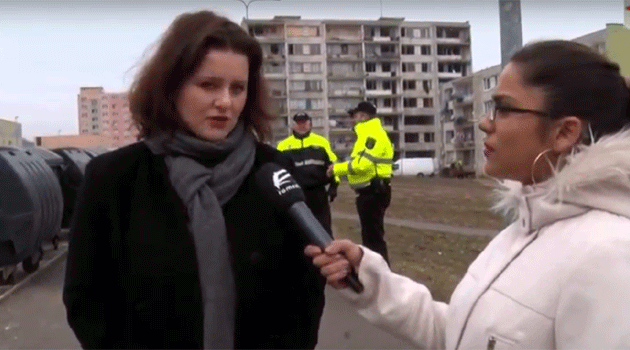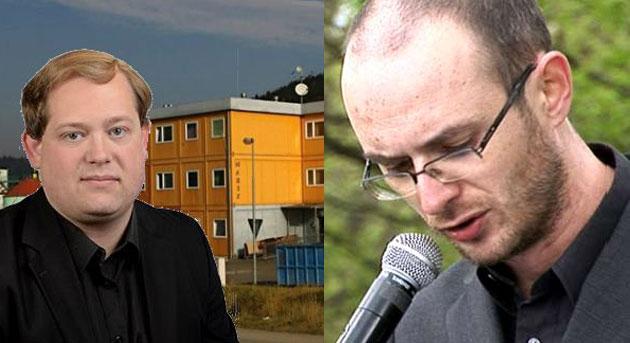Czech mayor heading new commission to design changes to housing benefits

A new commission led by the mayor of Frýdek-Místek, Michal Pobucký (Czech Social Democratic Party – ČSSD), has until the end of November to draft the future form of the Czech Republic’s housing benefits, and according to the commission’s findings, the Czech Labor and Social Affairs Ministry will draft either an amendment to the current law or entirely new legislation. Czech Labor and Social Affairs Minister Jana Maláčová (ČSSD) announced the new commission and its role at a meeting of the Social Affairs Committee in the lower house recently.
A couple of months ago the ministry had originally proposed merging the two existing housing benefits into one, tightening eligibility conditions for such benefits, and not providing any housing benefits at all to persons living in residential hotels after a couple of years. “In recent weeks we’ve been constantly going round in circles, so I have decided on a different answer,” the minister told the committee in the lower house.
“The commission model has proven its worth when it came to pensions or social services policy,” the minister said. “A similar body could also deal with the area of housing benefits as well.”
The cabinet is saying the benefits must be revised. The Labor Ministry drafted a bill a couple of months ago according to which the current housing allowance and housing contribution would be replaced with a new “housing supplement” as of 2021.
The eligibility conditions for that benefit would be stricter than today’s conditions and as of 2023 no residential hotel tenants would qualify for housing benefits at all. According to the background materials prepared for the Social Affairs Committee meeting in the lower house on 19 September, the deadline for stopping any benefits from flowing to those living in residential hotels has now been pushed back to the close of 2025.
Representatives of organizations aiding people in need had criticized the ministry’s original plan, saying it would significantly deteriorate the situations of impoverished people. The minister then said that what had been leaked from her office was just a working version of the changes.
“I haven’t backed down on anything,” she now told the committee. “I want a vigorous intervention and I am aware of the crisis nature of this situation.”
“The answer has to come to me within two months,” the minister said. “The key stakeholders’ positions have completely changed on proposals that seemed absolutely indisputable six months ago.”
The Union of Towns and Municipalities is now newly against the proposed changes, according to the minister. Deputy Labor and Social Affairs Minister Kateřina Jirková, who is in charge of insurance systems and non-insurance benefits, said the commission’s outcome should be an idea of what housing support should look like.
“[The commission should say] whether there will be changes to the parameters of the two existing benefits, or whether we are able to carry on with the concept of a single benefit,” she said. The state currently provides persons in need with an allowance to cover the cost of their housing, or an allowance plus a contribution.
People for whom the cost of adequate housing exceeds 30 % of their income (35 % in Prague) are eligible for the housing allowance. The contribution is a benefit in the system of aid to those in material distress, and those who are entitled to the housing allowance are also entitled to the housing contribution.
The housing contribution is meant to cover such people’s housing expenditures so they have enough left over from the aid to those in material distress to live on. In mid-February the Labor Ministry presented the principles according to which it would like to adapt the existing benefits.
Among the plans was the proposal that only the have-nots would receive state money. The amount of the benefits was meant to be governed by the customary rents in any given area according to price maps, and hygiene standards for housing were meant to be established.
According to organizations that support people living in adversity, it is not possible to abolish housing benefits for persons living in residential hotels or summer cottages because there is no social housing system in the Czech Republic and such people have nowhere else to go. Experts on social issues warn that families with dependent children and senior citizens could end up on the street as a result of the change.
“The proposal was too vigorous for those in the field,” said the vice-chair of the Social Affairs Committee, Czech MP Hana Aulická Jírovcová (Communist Party of Bohemia and Moravia – KSČM). “I am greatly disappointed that the ministry has backed down on it.”
According to the Communist vice-chair, it is necessary to take radical steps. Czech MP Aleš Juchelka (Association of Dissatisfied Citizens – ANO) said of the move to establish a commission: “I believe the minister doesn’t want to change anything.”
“We’ll see in November,” the ANO MP said. Another vice-chair of the committee, Czech MP Olga Richterová (Pirates) pointed out that there are no easy, fast solutions to this issue.
